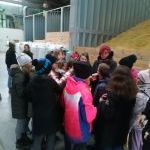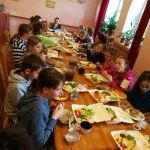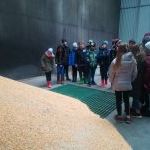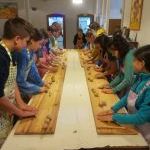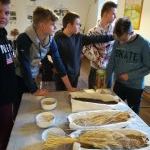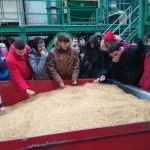Environmental farming
In 2019, 450 students (ages 13-18) from local schools visited Juchowo Farm to learn about organic farming is and how organic farms helps the environment. They learned about the organic farm as a place where high quality food is produced and which takes care of the balance of the natural, economic and social environment for the benefit of future generations. The children were able to understand what sustainability is and learn about the conservation measures taken on the farm. Young people were inspired to become conscious consumers who care about the future of their environment and our planet.
Website
Country
Media
* TOP TIP *
'Think about what you learnt on your farm visit and see if you can do anything similar in your school to help the planet'
How is the project linked to climate change & sustainability?
The theme of the project was to learn about an organic farm as a place that uses climate-friendly production practices. The use of external inputs such as fertilisers is kept to a minimum. In addition, measures are taken to prevent climate change by increasing soil fertility, protecting the soil from erosion, increasing biodiversity and improving water quality. Pupils learnt how farming can help the environment by maintaining mid-field trees, planting flower strips and creating water ponds. They also learnt how compost is produced to use on the farm, as well as other actions that are taken in on organic farm to prevent climate change.
Who was involved?
The project involved the Karlowski Foundation which runs the farm, as well as teachers and students from schools from Szczecinek in Northern Poland. The project was co-financed by regional funds supporting rural development: LEADER Rural Development Plan 2014 - 2020; Local Action Group Pojezierze Razem (Lakeland together).
How were the participants involved?
The visit to the farm was an educational trip during which the students could experience with all their senses what an organic farm is. The visit to the cowsheds allowed them to see why manure is classed as 'the farmer's black gold', how it fertilises the soil and has a positive effect on crops.
During the visit to the garden and the fields and meadows, the pupils experienced the wide diversity of plants, insects and birds that can be found in an environment where no chemicals are used. In addition, students visited the on-site sewage treatment plant, hedge strips between fields, flower meadows, flower strips, apiary and much more. The students were impressed by these places and were inspired to take action to protect the environment. The stay at the farm ended with a discussion on how can they could positively influence the quality of nature in their own surroundings.
Key steps
- Identify a suitable farm close to your school that hosts visits
- Discuss with the farm what your learning outcomes will be
- Work with the farm to put together a programme and activities for learning
- Check that key health and safety measures are in place for the visit, like handwashing and suitable staffing numbers.

